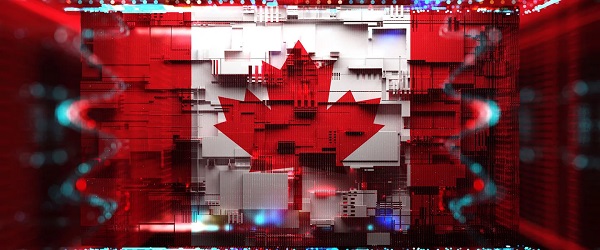Economy
Trump’s Wakeup Call to Canada – Oil & Gas is Critical to our Economy

From EnergyNow.Ca
By Jim Warren
On the bright side, at least President Donald Trump’s threat to impose 25% tariffs on Canadian oil and gas, might have alerted some Central Canadians to the critical importance of oil and gas to the national economy. Trump’s tariff pronouncements may also have forced the Laurentian Elite to rethink the wisdom of allowing anarchy to reign in our immigration system and border management.
Any nation hoping to be a serious player in the areas of international trade and diplomacy needs to meet several critical criteria. Without them a country can have difficulty marketing its goods and services to the world and in retaining meaningful economic and political sovereignty. One of the key criteria is for a country to have a good measure of control over its borders. But there are other elements critical to having effective sovereignty and independence. Having access to versatile, readily transportable energy commodities like oil and gas is one of those essentials. Accordingly, oil and gas are considered strategically important industries.
Lacking any of the major building blocks of strategic economic sovereignty, like the steel and aluminum industries and a thriving manufacturing sector, as well as highly developed transportation sector and the energy industries needed to support all the other sectors can leave a country vulnerable to domination by others. The vulnerabilities can lead to economic and political crises for a country during trade wars, international disputes leading to trade sanctions and embargoes, shooting wars and big natural disasters. A lack of strong trade and military alliances can make matters even worse.
It’s not like there wasn’t a mountain of evidence underlining the strategic importance of oil and gas in the last few years. How smart was it for Angela Merkel to allow Russia, a state run by a psychopath and his team of criminal oligarchs, to control a major portion of its energy supplies? The Ukraine gets it. After its war with Russia began, the Ukrainian government allowed Russian gas to be piped across its territory to Eastern Europe for nearly two years. This was because they realized messing with a commodity critical to bordering states such as Hungary, Slovakia and Romania was politically hazardous.
It is true that a country can still have a thriving economy even if it is missing one or two items from the basket of strategically important industries. Singapore, for example, needs to import fossil fuel but is still considered one of Southeast Asia’s economic tigers. But this is only possible because Singapore is so good at most everything else. It has several other economic engines that perform exceptionally well.
Looking back several decades reminds us that Japan risked entering a World War to obtain the petroleum they needed. To get it, the Japanese concluded they needed to conquer parts of Indonesia. (Similarly they wanted Southeast Asia for its rubber.) They knew these were actions the US wouldn’t tolerate, but they decided they had to do them anyway.
While we’re on the topic of World War II, it is instructive to recall Hitler fought it with one hand tied behind his back. Germany had no oil of its own and gasoline refined from coal and the oil available from their Romanian ally were never enough. That’s why the German’s placed such great hopes in capturing Russia’s Caspian oil fields in 1943. Similarly, Hitler invaded Norway to ensure access to Swedish iron ore—another strategic commodity Germany lacked.
Canada’s oil revenues along with the taxes and royalties collected from those revenues are derived almost entirely from the oil we export to the US. Our export revenues for 2022, following the worst of the covid years, were $123 billion. They accounted for 15.8% of all Canada’s exports and 6.6% of GDP. The following year saw exceptionally high oil prices globally. That year the value of oil Canada’s oil production hit $139 billion and accounted for 7.1% of GDP. Pull even half of those revenues out of the Canadian economy for very long and we’re in economic depression territory.
So, thanks for the wakeup call president Trump. The fact Trump has indicated he will postpone his final decision until February 1, is of some comfort. Danielle Smith has met with him at Mar-a-Lago to make the case against tariffs on Canadian crude. Smith is among the most knowledgeable and capable people there are when it comes to oil and gas production and trade. We couldn’t hope for a better advocate for the producing provinces. She’s certainly a cut above Justin Trudeau and anyone else in his cabinet. Let’s hope Smith she managed to convince Trump how imposing tariffs would harm the economies of both countries.
There is an obvious way to prevent being in this sort of situation in the future – diversify our export opportunities by building more pipelines to tidewater. In my last column I focused on the difficulties involved in getting a pipeline built to the Atlantic coast. The challenges identified focused on the barriers thrown up by Quebec’s politicians and environmentalists. Trump’s ongoing tariff pronouncements suggest it would be in Canada’s national strategic interest to use whatever legal measures are required to sweep those barriers aside in both Quebec and British Columbia to get new tidewater pipelines built.
There is plenty the federal government can do to override the demands of municipalities, special interest groups and provincial governments in support of high national purposes and in emergencies. Section 91 of the constitution gives parliament broad, albeit somewhat vague, powers to do what needs to be done “to make laws for the peace, order and good government of Canada” in all matters not exclusively the jurisdiction of the provinces. And, you would think that if the heavy hand of the Emergencies Act can be used to prevent horn honking and traffic snarls in Ottawa, it could be employed to prevent the environmentally sanctimonious from blocking projects critical to our economic and political sovereignty. Of course doing any of this will require voting the Liberals out of office.
Sorry premier Ford, retaliatory tariffs and export taxes can’t be the only tools employed; especially when they cause self-inflicted wounds. Unfortunately, until we have more export opportunities for oil and gas we may need to limit our counter attacks on Americans to misleading travel directions and poor restaurant service.
Business
Global elites insisting on digital currency to phase out cash

From LifeSiteNews
By David James
The aim is to have the digital euro fully in place by 2030 in order to move Europe fully into the United Nations’ post-capitalist system described in Agenda 2030.
It always pays to scrutinize closely the comments of financial elites because they are rarely honest about their intentions. An instance is the comments of Christine Lagarde, president of the European Central Bank (ECB) who said there will be a vote next month in the European Union parliament on the next step toward creating a digital euro, which would be a central bank digital currency (CBDC).
A central bank digital currency is money issued by the central bank in digital form as opposed to digital credit issued by banks, which is the dominant form of money in Western societies. She claims that it will mean more freedom for Europeans and that there is nothing to fear.
Lagarde anticipates launching the digital euro in about 18 months. The aim is to have it fully in place by 2030 in order to move Europe fully into the United Nations’ post-capitalist system that is described in Agenda 2030.
Lagarde’s blandishments about what the digital euro represents do not survive close examination. She acknowledged that the main concern of the population is the privacy implications, claiming the ECB is looking at a technology that will offer protections. The private banks, she said, will apply the “rules of scrutiny” that already have access to the transactions. “We are not interested in the data. The private banks are interested in the data.”
Lagarde also said that the “people have dictated” the transition to a digital euro. This looks dubious. Neither the EU Commission nor the ECB is democratically elected. And if the main concern people have with a CBDC is privacy, then why would people prefer it over cash, which is immune to scrutiny? It is not as if a digital euro would satisfy an unmet need. Digital money – credit and online transactions – is already freely available in the banking system.
The ECB is also speaking out of both sides of its mouth, saying on one hand that the digital euro will only complement cash and on the other that cash will be eliminated.
Lagarde made it clear that the aim is to phase out cash completely. Agenda 2030, she claims, “can only be enforced in a cashless economy.” Why? What is it about cash that makes environmental policies impossible to implement? The answer is surely that a digital euro is needed to control people’s behavior, forcing them to comply with environmental rules.
Previous comments by central bankers suggest there is good reason for Europeans to be extremely suspicious. In 2021, the general manager of the Bank for International Settlements, Agustín Carstens, said: “We don’t know who’s using a $100 bill today and we don’t know who’s using a 1,000-peso bill today. The key difference with the CBDC is the central bank will have absolute control on the rules and regulations that will determine the use of that expression of central bank liability, and also we will have the technology to enforce that.”
The pretext for the financial power play is climate change and the push toward net zero. A European CBDC is not, as implied by Lagarde, the creation of a new digital monetary mechanism. As economist Richard Werner points out, that already exists – credit and debit cards, for example. The significance of a digital euro is that it threatens the banking system.
A CBDC, like cash, has no interest rate on it. So why would people continue to use credit produced by private entities such as banks or credit card companies – currently over 95 percent of the money supply – on which they have to pay interest? As the Reserve Bank of New Zealand noted, CBDCs have the potential to destroy private banks.
That problem does not seem to concern the ECB, however. Indeed, fundamentally altering the banking system may be what they are aiming for. Lagarde said “climate compliance” will become a core element of bank supervision, not a separate initiative, “because climate change presents significant, material financial risks to banks and the entire financial system.”
The ECB’s supervision will mandate that banks integrate the management of climate-related and environmental risks into their existing risk management processes, particularly through new prudential transition planning requirements under what is called CRD VI. European banking, it seems, will no longer be defined by profitability and fiscal soundness but also by the politics of climate change.
The slipperiness of the ECB‘s arguments point to a much darker ambition. Werner says when CBDCs are connected to digital IDs “we are talking about the most totalitarian control system in human history … it gives you as a controller complete visibility on what everyone is doing, every transaction.
“The monitoring is only one aspect. These CBDCs are programmable and you can use big data algorithms, which they sell to us as artificial intelligence, in order to have rules about who can buy what and for what purpose, at what time and at what place – and therefore control all your movement. In the history of dictatorships, there never has been such a powerful control tool.”
There is a flaw, though, in the ECB’s push to change Europe’s financial architecture that may prove fatal to its ambitions. The EU and ECB do not have genuine central control. When the euro was established in 1998, the only way Germany was able to join was on the condition there was no consolidation of the government debt. So, although the ECB notionally sets interest rates for the zone, government debt is held at the national level and each country’s interest rate differs.
The ECB is thus a central bank in name only, unlike the U.S. Federal Reserve, or for that matter most country’s central banks, that oversee their national government debt. A European nation can choose to exit the EU, and each has to have its own monetary policy in spite of the ECB setting a uniform rate.
The push to create a digital euro is most likely an attempt to deal with these contradictions, but at best it will be a makeshift solution and it will take very little for it to fall apart. Disintegration of the European Union, and the common currency, is not out of the question.
Meanwhile, the U.S. is going in the opposite direction. In July, the U.S. House of Representatives passed the Anti-CBDC Surveillance State Act, which prevents the Federal Reserve from issuing a retail CBDC directly to individuals.
European debt is becoming increasingly parlous, especially in France where there have even been suggestions that there might need to be assistance from the International Monetary Fund. Italy’s debt, which is 138 percent of GDP, is also problematic. Lagarde is hoping for a rollout of the digital euro in 2027 and completion in 2030. But the Euro zone, and the ECB that oversees it, may not last that long.
Business
Upcoming federal budget likely to increase—not reduce—policy uncertainty

From the Fraser Institute
By Tegan Hill and Grady Munro
The government is opening the door to cronyism, favouritism and potentially outright corruption
In the midst of budget consultations, the Carney government hopes its upcoming fall budget will provide “certainty” to investors. While Canada desperately needs to attract more investment, the government’s plan thus far may actually make Canada less attractive to investors.
Canada faces serious economic challenges. In recent years, the economy (measured on an inflation-adjusted per-person basis) has grown at its slowest rate since the Great Depression. And living standards have hardly improved over the last decade.
At the heart of this economic stagnation is a collapse in business investment, which is necessary to equip Canadian workers with the tools and technology to produce more and provide higher quality goods and services. Indeed, from 2014 to 2022, inflation-adjusted business investment (excluding residential construction) per worker in Canada declined (on average) by 2.3 per cent annually. For perspective, business investment per worker increased (on average) by 2.8 per cent annually from 2000 to 2014.
While there are many factors that contribute to this decline, uncertainty around government policy and regulation is certainly one. For example, investors surveyed in both the mining and energy sectors consistently highlight policy and regulatory uncertainty as a key factor that deters investment. And investors indicate that uncertainty on regulations is higher in Canadian provinces than in U.S. states, which can lead to future declines in economic growth and employment. Given this, the Carney government is right to try and provide greater certainty for investors.
But the upcoming federal budget will likely do the exact opposite.
According to Liberal MPs involved in the budget consultation process, the budget will expand on themes laid out in the recently-passed Building Canada Act (a.k.a. Bill C-5), while also putting new rules into place that signal where the government wants investment to be focused.
This is the wrong approach. Bill C-5 is intended to help improve regulatory certainty by speeding up the approval process for projects that cabinet deems to be in the “national interest” while also allowing cabinet to override existing laws, regulations and guidelines to facilitate such projects. In other words, the legislation gives cabinet the power to pick winners and losers based on vague criteria and priorities rather than reducing the regulatory burden for all businesses.
Put simply, the government is opening the door to cronyism, favouritism and potentially outright corruption. This won’t improve certainty; it will instead introduce further ambiguity into the system and make Canada even less attractive to investment.
In addition to the regulatory side, the budget will likely deter investment by projecting massive deficits in the coming years and adding considerably to federal debt. In fact, based on the government’s election platform, the government planned to run deficits totalling $224.8 billion over the next four years—and that’s before the government pledged tens of billions more in additional defence spending.
A growing debt burden can deter investment in two ways. First, when governments run deficits they increase demand for borrowing by competing with the private sector for resources. This can raise interest rates for the government and private sector alike, which lowers the amount of private investment into the economy. Second, a rising debt burden raises the risk that governments will need to increase taxes in the future to pay off debt or finance their growing interest payments. The threat of higher taxes, which would reduce returns on investment, can deter businesses from investing in Canada today.
Much is riding on the Carney government’s upcoming budget, which will set the tone for federal policy over the coming years. To attract greater investment and help address Canada’s economic challenges, the government should provide greater certainty for businesses. That means reining in spending, massive deficits and reducing the regulatory burden for all businesses—not more of the same.
-

 Frontier Centre for Public Policy1 day ago
Frontier Centre for Public Policy1 day agoBloodvein Blockade Puts Public Land Rights At Risk
-

 Business2 days ago
Business2 days agoDeportations causing delays in US construction industry
-

 Alberta1 day ago
Alberta1 day agoParents group blasts Alberta government for weakening sexually explicit school book ban
-

 Crime2 days ago
Crime2 days agoCanadian teacher showed Charlie Kirk assassination video to young students, said he deserved to die
-

 Business1 day ago
Business1 day agoThe Truth Is Buried Under Sechelt’s Unproven Graves
-

 Automotive2 days ago
Automotive2 days agoMichigan could be a winner as companies pull back from EVs
-

 International1 day ago
International1 day agoFrance records more deaths than births for the first time in 80 years
-

 National1 day ago
National1 day agoChrystia Freeland resigns from Mark Carney’s cabinet, asked to become Ukraine envoy








